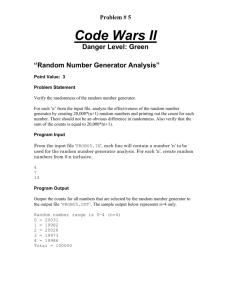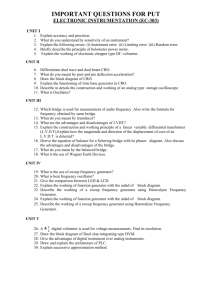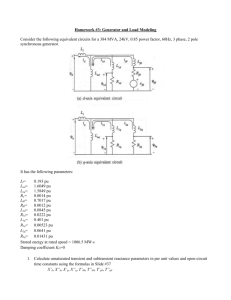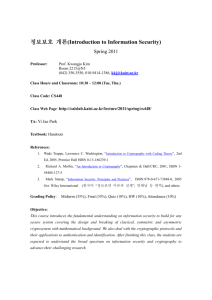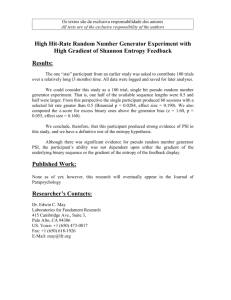Computer Security Exercises
advertisement
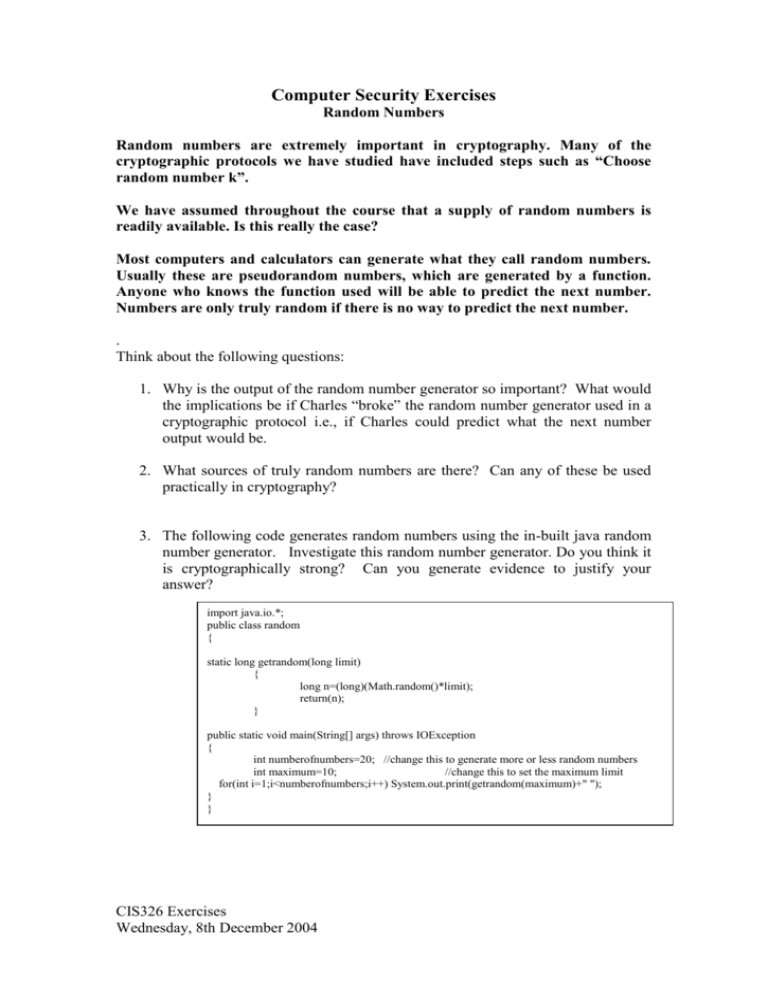
Computer Security Exercises
Random Numbers
Random numbers are extremely important in cryptography. Many of the
cryptographic protocols we have studied have included steps such as “Choose
random number k”.
We have assumed throughout the course that a supply of random numbers is
readily available. Is this really the case?
Most computers and calculators can generate what they call random numbers.
Usually these are pseudorandom numbers, which are generated by a function.
Anyone who knows the function used will be able to predict the next number.
Numbers are only truly random if there is no way to predict the next number.
.
Think about the following questions:
1. Why is the output of the random number generator so important? What would
the implications be if Charles “broke” the random number generator used in a
cryptographic protocol i.e., if Charles could predict what the next number
output would be.
2. What sources of truly random numbers are there? Can any of these be used
practically in cryptography?
3. The following code generates random numbers using the in-built java random
number generator. Investigate this random number generator. Do you think it
is cryptographically strong? Can you generate evidence to justify your
answer?
import java.io.*;
public class random
{
static long getrandom(long limit)
{
long n=(long)(Math.random()*limit);
return(n);
}
public static void main(String[] args) throws IOException
{
int numberofnumbers=20; //change this to generate more or less random numbers
int maximum=10;
//change this to set the maximum limit
for(int i=1;i<numberofnumbers;i++) System.out.print(getrandom(maximum)+" ");
}
}
CIS326 Exercises
Wednesday, 8th December 2004

